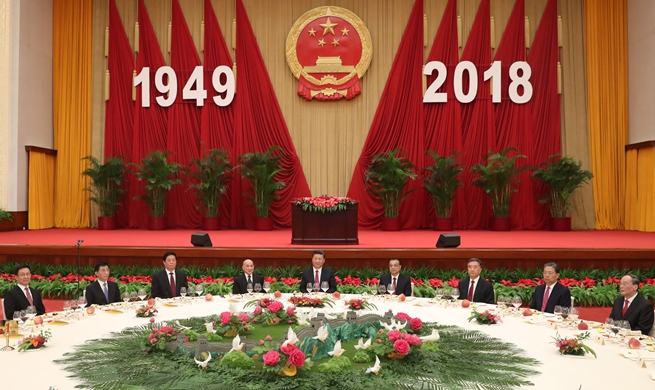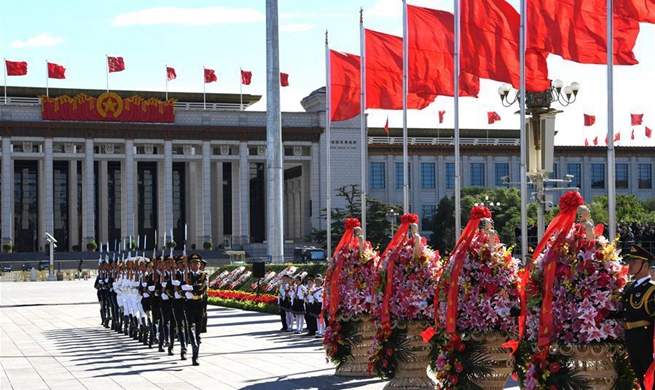By Maria Spiliopoulou
ATHENS, Sept. 30 (Xinhua) -- Greece "remains committed to the Prespes agreement" aimed to resolve the name issue regarding the use of the term Macedonia , the Greek Foreign Ministry said in statement on Sunday evening, after the referendum at the Former Yugoslav Republic of Macedonia (FYROM).
The overwhelming majority of voters who reached the ballots in the Balkan state had reportedly supported the deal signed between the two governments at Prespes lake on June 17, according to partial referendum results, but participation level was far below 50 percent.
Greece follows closely developments in FYROM, remaining committed to the Prespes agreement, read an e-mailed statement issued from the Greek Foreign Ministry in a first reaction from Athens.
"Greece respects the choices of the citizens of FYROM," the statement said. Noting that the referendum was not binding, as the government of Skopje has said, the Greek ministry urged for cautious steps to keep the positive momentum of the Prespes agreement.
Following UN-mediated negotiations for years, the governments of Greece and FYROM reached a deal this June to put an end to the name row which had started in 1991.
Athens was worried that the use of the same name of a northern Greek province by the neighboring state could lead to territorial claims.
Under the agreement which was signed on June 17 by the two governments at Prespes lake which is the natural border between the two states, FYROM's new name will be "Republic of North Macedonia".
The name row was the main obstacle Skopje had to overcome to make progress towards European Union (EU) and NATO integration.
Although the two governments promote the deal, there are still many people in both countries opposing the agreement.
The agreement will be brought to the Greek parliament most likely in early 2019, according to government sources.
Panos Kammenos, Greece's defense minister and leader of the right-wing Independent Greeks party (ANEL), the junior partner in the ruling coalition, stated many times that his party will vote against the deal in the assembly.
A collapse of the ruling coalition may lead to early elections. The government's four-year term in office expires in September 2019.













